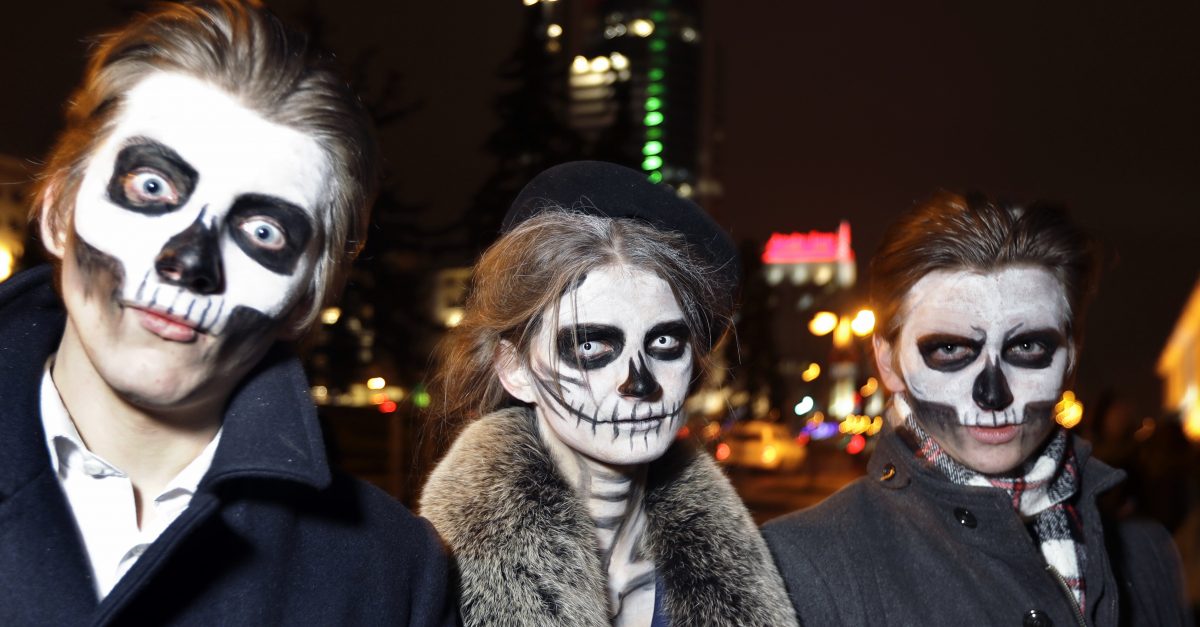Although the two holidays share some common elements, cultural experts say the Hispanic and Meixcan holiday of Día de los Muertos boasts a much different meaning than the Anglo-American celebration of Halloween.
Videos by Rare
Just as some Anglos mistakenly view “Cinco de Mayo” as the “Mexican Fourth of July,” Día de los Muertos is reportedly not “Hispanic Halloween.”
For one thing, Día de los Muertos, which translates to the ‘Day of the Dead,’ is actually meant to celebrate life and not death, like its name suggests.
“It is not the Mexican Halloween, as some refer to it, because Halloween is a scary moment. Día de Los Muertos is not a scary moment,” activist Luis Gavito said in an interview a local TV station. “It speaks about our intimate relationship with death that is part of life.”
RELATED: Houston Law Firm Pays for Halloween Revelers’ Rides for a Good Cause
Día de los Muertos runs for several days, typically from October 31 to November 2, with one of its common elements involving the spirits of the dearly departed.
According to the Día de los Muertos tradition, the spirits of deceased children come down from heaven to visit the earth starting on midnight, October 31, and spend a day with their families; the following day, deceased adults pay their spectral visits.
With this in mind, celebrants create altars in their homes and leave candles, photos, flowers and samples of the deceased’s favorite foods for them to enjoy; decorated sugar skulls and the accompanying makeup are said to refresh and represent the departed believed to be back after a long journey from the afterlife.
RELATED: The costumes at LeBron’s spooky party were the stuff of nightmares
Historians agree the celebration dates back more than 3,000 years to the Aztecs, who historians say once ruled central and southern Mexico.
When the Spanish colonized the area, history shows they altered it to coincide with All Saints Day (November 1) and turned it into a Catholic ritual.
While Halloween (All Hallows Eve) may be about ghouls and goblins, Día de los Muertos is reportedly about remembrance and celebration of those who have gone on to the other side.
Have a good one, Houston!
[anvplayer video=”4044721″]



